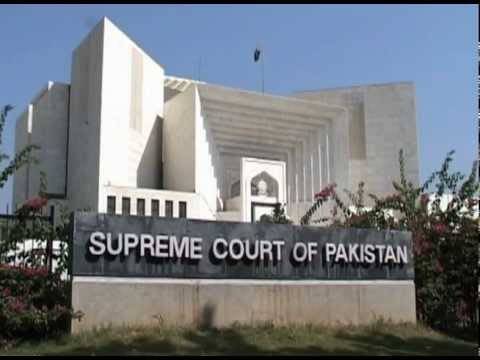ISLAMABAD - The fate of the Local Government (LG) elections faced another severe blow on Monday when senate chairman in a landmark ruling said that election commission cannot hold LG polls in the federal capital on the basis of a draft law, as ordered by the Supreme Court. The Islamabad Capital Territory Local Government Bill, 2015 is lying pending before the Upper House of the Parliament while the National Assembly has already passed it. The Election Commission of Pakistan (ECP) however in the light of Supreme Court’ orders of March 4, 6 and 10 has announced July 25 as the polling day for local bodies election in Islamabad.
The court in one of its orders said that LG election in Islamabad should be held on the basis of contents of the aforesaid bill because the holding of such elections is mandated by the constitution. But, Senate Chairman Mian Raza Rabbani in his ruling said that the process suggested in an order of SC would be tantamount to obstructing, restricting, infringing and impinging upon the sovereignty of the parliament and its right to legislate without let or hindrance. This came when the lawmakers across the aisle demanded the chairman give his ruling on the issue after a report of the Senate Committee on Interior on the above said bill was presented in the house.
“As a consequence of the above discussion, it is inappropriate for any person, body or organisation to use the Order dated 10-3-2015, passed in CMA No. 18/2014, by the Supreme Court, as a fig leaf for its actions or steps taken which otherwise are without the force of law as the Bill on which reliance is being placed upon, was at that time and continues till date to be a proposal for legislation not having the force of law as contemplated under Article 75, Constitution, 1973,” the ruling says.
“That Parliament, cannot allow any fetters to be placed on the process of legislation provided under Article 70, Constitution, 1973, read with the relevant Rules,” Rabbani said. He said that the order of the court infringes the trichotomy of power, provided in the constitution, which has been vividly defined and upheld by the Supreme Court in various judgments.
He further ruled that if the constitution requires for a certain act to be done and calls upon the parliament to legislate yet parliament fails to legislate, the command of the constitution cannot be held in abeyance or ignored. “I’ve no cavil with this proposition, but the command of the constitution cannot be carried out and or implemented in a legal vacuum,” he said.
Senate chairman said that apex court should have laid down the broad guidelines or parameters under which the ECP, could or should, carry out and conduct the local bodies election in Islamabad, adding in the alternative it should have directed the federal government to promulgate such a law or issue a regulation or notification to provide a legal cover to the process of holding of such elections.
Rabbani also directed the senate secretariat to provide a copy of this ruling to the office of National Assembly speaker, ministries of law and parliamentary affairs, and the ECP.
“The federation or the ECP did not come with clean hands on the legislative journey yet to be covered... the text of the Bill on which reliance is being placed at the time of the passing of the said orders was still pending before the National Assembly and had yet to be passed by that House, and after such passage be transmitted to the Senate, to be considered and passed with or without amendment, before being sent to the President for assent,” he added.
Chairman Rabbani regretted that the ECP in the various notifications and circulars that have been issued in respect to the local bodies elections in the federal capital has coined a new phraseology in law i.e. “section 20 of the draft legislation”.
“It appears from use of this phraseology that the ECP has placed in juxta position, a proposal for legislation which has been moved under Article 70, Constitution, 1973, and is pending before either House of Parliament with a Bill becoming a law in terms of clause (3) of Article 75 of the Constitution, 1973,” he maintained. He warned that if such a precedent is allowed to develop, it will not only have ‘horrific, horrendous and chaotic consequences’ but will also negate the entire process stipulated under Article 70 and the rules of procedure framed under Article 67 of the constitution.






